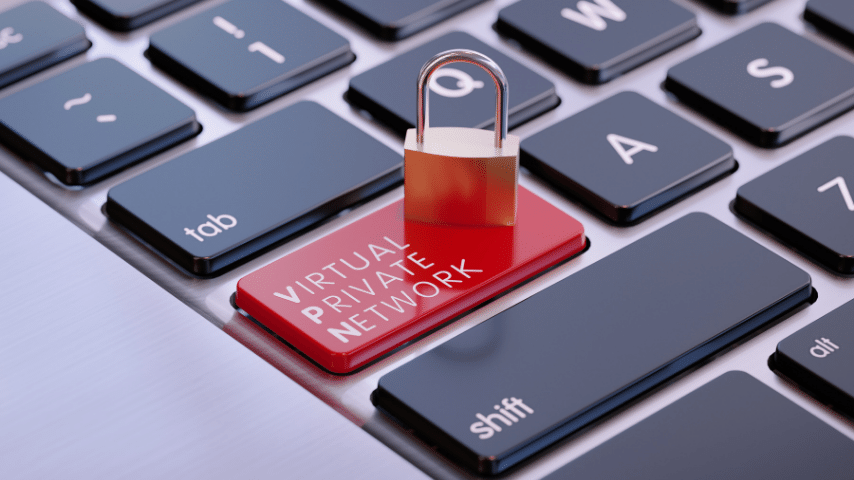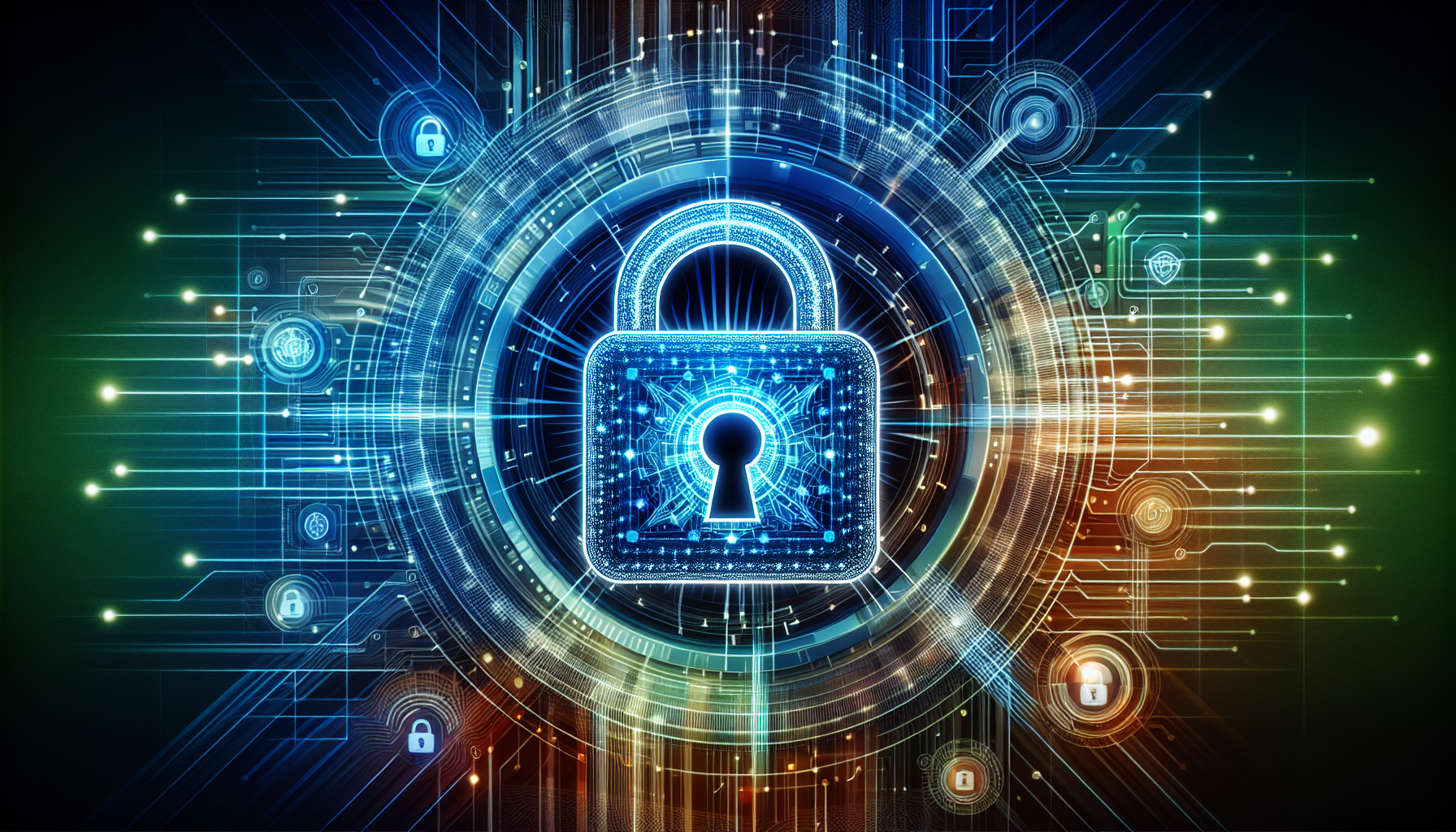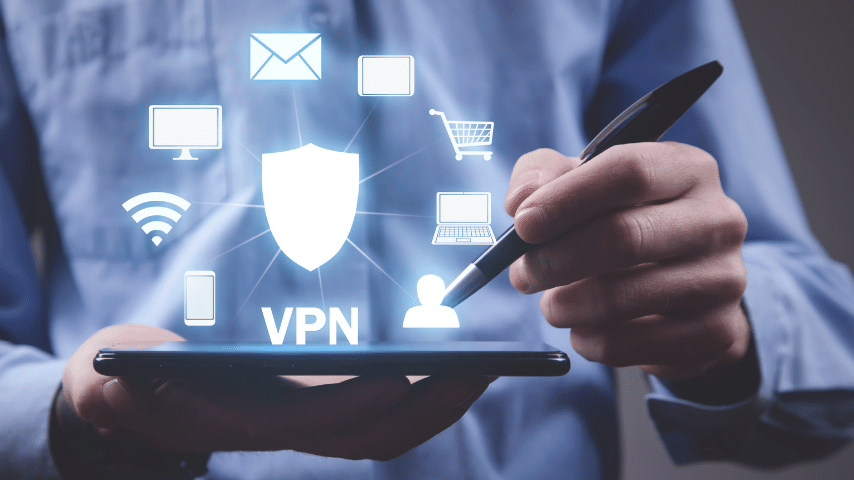In an increasingly digital world, where cyber threats and privacy concerns loom large, Virtual Private Networks (VPNs) have emerged as the go-to solution for enhanced online privacy and security. By creating a secure, encrypted tunnel between your device and a server, VPNs shield your online activities from prying eyes, whether it’s your internet service provider, hackers, or even governments. But the benefits of VPNs go beyond just privacy and security. They also provide anonymity, access to restricted content, the ability to bypass censorship, safe online transactions, remote network access, reduced online footprint, improved internet performance, and more. With a wide range of applications, VPNs have become essential tools in safeguarding our digital lives in an interconnected world.
Privacy and Security
In today’s digital age, privacy and security are of utmost importance when it comes to online activities. Virtual Private Networks (VPNs) play a vital role in enhancing online privacy and security. When you connect to the internet through a VPN, your data is encrypted. This means that it becomes unreadable to anyone who might intercept it, including your internet service provider (ISP), hackers, and even governments. By using a VPN, you can protect your personal information and keep your online activities private.
Data Encryption
Data encryption is one of the primary benefits of using a VPN. When you browse the internet without a VPN, your data is sent in plain text, making it vulnerable to interception and snooping. However, when you use a VPN, your data is encrypted before it leaves your device and is then transmitted through a secure, encrypted tunnel. This encryption ensures that even if someone manages to intercept your data, they won’t be able to decipher its content.

Protection on Public Wi-Fi networks
Public Wi-Fi networks are notorious for their lack of security. When you connect to a public Wi-Fi network, your data is transmitted without encryption, making it easy for hackers to intercept and access your personal information. However, by using a VPN on public Wi-Fi networks, you can create a secure connection and encrypt your data. This way, you can confidently browse the internet, access your online accounts, and conduct financial transactions without worrying about the security of your data.
Anonymity
Maintaining anonymity online is a significant concern for many internet users. VPNs provide a degree of anonymity by masking your IP address and rerouting your internet traffic through servers in different locations.
Masking IP Address
An IP address is a unique identifier assigned to your device when you connect to the internet. It can reveal your geographical location and be used to track your online activities. However, when you use a VPN, your IP address is replaced with the IP address of the VPN server you are connected to. This makes it difficult for websites, services, and individuals to track your online activities and pinpoint your exact location.
Rerouting Internet Traffic
When you use a VPN, your internet traffic is rerouted through servers located in different countries or regions. This not only disguises your IP address but also makes it appear as if you are accessing the internet from a different location. By rerouting your internet traffic, VPNs allow you to bypass geographical restrictions and access content that may be blocked in your current location.
Access to Restricted Content
VPNs provide a valuable solution for accessing restricted content online. Whether it’s accessing a broader range of shows on streaming platforms like Netflix or reaching websites that are blocked in certain countries, VPNs can provide access to a wealth of global content.
Bypassing Geographical Restrictions on Streaming Platforms
Streaming platforms, such as Netflix, often have different content libraries for different countries. Due to licensing restrictions, certain shows and movies may only be available in specific regions. However, with a VPN, you can connect to a server in a country where your desired content is available. This allows you to bypass geographical restrictions and access a broader range of shows and movies.
Accessing Blocked Websites
In some countries, certain websites are blocked or restricted by the government. This could be due to political, religious, or cultural reasons. By using a VPN, you can bypass these restrictions and access the blocked websites. By connecting to a server in a different country, you can appear as if you are accessing the internet from that country, thus circumventing the limitations imposed by your local government.
Bypassing Censorship
In countries where internet censorship is prevalent, VPNs are crucial tools for accessing the unrestricted internet. They allow users to bypass government filters and access the full range of information and services available online. This is essential for maintaining freedom of information in restrictive regimes.
Accessing Unrestricted Internet in Censored Countries
In countries with strict internet censorship policies, VPNs provide individuals with a way to access the unrestricted internet. By connecting to a VPN server located outside the censored country, users can bypass government filters and gain access to blocked websites and services. This ensures that they can freely access information and communicate without limitations or fear of repercussions.
Preserving Freedom of Information
VPNs play a vital role in preserving freedom of information. By allowing individuals to bypass censorship and access unrestricted internet sources, VPNs ensure that information can flow freely. This is particularly important for journalists, activists, and citizens in countries where freedom of speech is limited. VPNs empower individuals to express their opinions, access uncensored news, and foster discourse without fear of surveillance or persecution.
Safe Online Transactions
With the increasing popularity of online banking and shopping, ensuring the security of your sensitive data during online transactions is crucial. VPNs offer an added layer of security, protecting your personal information from potential threats.
Protection of Sensitive Data
When you use a VPN, your data is encrypted, ensuring that sensitive information such as credit card numbers and bank account details are protected. This encryption makes it extremely difficult for hackers or malicious actors to intercept and access your data. By using a VPN during online transactions, you can have peace of mind knowing that your personal information is secure.
Ensuring Secure Online Banking and Shopping
By encrypting your data and creating a secure connection, VPNs provide a safe environment for online banking and shopping. When you access your bank account or make a purchase online, your information will be transmitted through a secure, encrypted tunnel. This greatly reduces the risk of your data being intercepted by hackers or criminals. VPNs are particularly useful when using public Wi-Fi networks for online transactions, as they add an extra layer of protection to your data.
Remote Access
VPNs are not only beneficial for personal use but also offer significant advantages in businesses and organizations. Remote access to private networks through VPNs enhances productivity and flexibility.
Secure Access to Private Networks
Businesses often have private networks that allow employees to access company resources securely. By using a VPN, employees can establish a secure connection to the company’s network from remote locations. This ensures that sensitive information remains protected and confidential. Additionally, VPNs eliminate the need for employees to be physically present in the office to access essential resources, thus enhancing productivity and flexibility.
Enhancing Productivity and Flexibility
VPNs enable individuals to work remotely and access necessary resources from anywhere in the world. This flexibility promotes work-life balance and allows individuals to be productive even when they are not physically present in the office. By eliminating geographical limitations, VPNs enable businesses to tap into a global talent pool and provide employees with the freedom to work from their preferred locations.
Reduced Online Footprint
One of the advantages of using a VPN is minimizing your online footprint. By doing so, you can protect against targeted advertising and potential data profiling by third-party companies.
Protection against Targeted Advertising
When you browse the internet, various companies and advertisers use your online activities to target you with personalized ads. By using a VPN, your IP address is masked, and your internet traffic is routed through servers that can be located anywhere in the world. This makes it difficult for advertisers to track your online activities and deliver targeted advertisements. VPNs offer a way to minimize targeted advertising and enjoy a more private browsing experience.
Minimizing Data Profiling
Data profiling involves collecting and analyzing data about individuals to gain insights into their preferences, behaviors, and characteristics. This information is often used by companies for targeted marketing and other purposes. By using a VPN, you can minimize your online footprint and reduce the amount of data that can be collected and used for profiling. This helps protect your privacy and limit the extent to which your personal information is exposed.
Improved Performance
While privacy and security are the primary reasons for using a VPN, some users also experience improved internet performance with a VPN.
Avoiding Bandwidth Throttling
ISPs sometimes engage in bandwidth throttling, which refers to intentionally slowing down internet speeds for specific activities or websites. This can result in slower streaming, downloading, or uploading speeds. However, by using a VPN, your internet traffic is encrypted and routed through the VPN server, making it more difficult for your ISP to identify and throttle your bandwidth. As a result, VPN users can avoid bandwidth throttling and potentially experience faster and more consistent internet speeds.
Potential for Faster Download and Upload Speeds
In some cases, using a VPN can lead to faster download and upload speeds. This is particularly true when accessing content or services that are geographically distant from your location. By connecting to a VPN server in a closer proximity to the content or service you’re trying to access, you can reduce latency and increase data transfer speeds. While VPNs may not always guarantee faster speeds, they have the potential to improve performance, especially for certain activities or specific server locations.
Choosing a VPN
There are several factors to consider when choosing a VPN that best suits your needs. It’s important to evaluate a VPN provider based on their privacy policy, the number of server locations they offer, and the strength of encryption they provide.
Privacy Policy
A reliable VPN should have a strict no-logs policy. This means that they do not collect any personal information or record your online activities. By choosing a VPN with a strong commitment to user privacy, you can ensure that your data remains confidential and secure.
Number of Server Locations
The number of server locations a VPN provider offers is an important consideration. A larger number of server locations means more options for you to choose from and a greater chance of finding a server that best suits your needs. It also means that you can access global content more easily and bypass geographical restrictions effectively.
Strength of Encryption
When it comes to security, the strength of encryption used by a VPN is crucial. Look for VPN providers that offer robust encryption protocols, such as AES-256, which is considered the gold standard in encryption. Strong encryption ensures that your data remains secure and protected from potential threats.
In conclusion, VPNs are versatile tools that offer a range of benefits for enhancing online privacy, security, and freedom. Whether it’s protecting your data on public Wi-Fi networks, accessing restricted content, bypassing censorship, or ensuring secure online transactions, VPNs provide valuable solutions. By choosing a VPN that aligns with your specific needs and priorities, you can safeguard your digital life and enjoy a more private and secure online experience.




